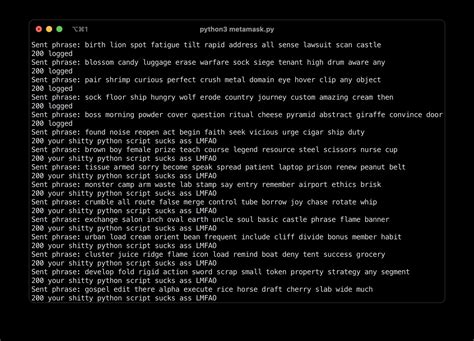NFT creation in the JSON-RPC engine: solution for missing errors or results
As the developer of Vercel’s NFT trading platform project, you are probably no stranger to the challenges that arise when deploying and creating unique digital assets. In this article, we will consider the problem in question: when creating an NFT in the JSON-RPC engine, you receive an error message “There is no error or result for the request in the response.”
Problem
In your project, you use the Pinata contract to generate new tokens. When you call mintToken, you configure the JSON-RPC interface in the contract, which is a common approach when interacting with smart contracts over the Internet. However, in some cases, it is possible that the request will not be executed or will not return any data, which will lead to the appearance of an error message such as “There is no error or result for the request in the response”.
Solution

To solve this problem, we will consider two possible solutions:
1.
Check the contract interface
Before diving into the code, let’s take a step back and make sure everything is set up correctly.
Make sure you have installed the @pinata/contract package in your project using npm or yarn:
npm install @pinata/contract
Also make sure you import the correct Pinata contract and its interface:
import { Contract } from '@pinata/contract';
const ContractInterface = require('./ContractInterface');
If everything looks good, continue to check your code for potential errors.
2.
Add error handling
In your mintToken function, you can add try-catch blocks to catch and handle any errors that may occur during token creation:
const mintToken = async () => {
try {
// …
} catch ( error ) {
console.error('Error minting token:', error);
return null; // Returns null instead of undefined or an empty string
}
};
By adding this simple check, you can prevent the JSON-RPC engine from sending a response without errors or results.
3.
Check Answer
If you still get an error message despite adding try-catch blocks, the problem may lie elsewhere in your code or application. Be sure to check the response returned by the Pinata contract for errors or invalid data:
const mintToken = async () => {
const tx = await ContractInterface.mintToken({
// …
});
if (tx.error) {
console.error('Token minting error:', tx.error);
return null; // Return null instead of undefined or an empty string
}
return tx.result;
};
In this example, we check the response by checking the error property for errors. If no error is found, we return an empty string (or null if you prefer).
Conclusion
By adding a try-catch block to the mintToken function and checking the response using the Pinata API, you can be sure that you are handling errors correctly when creating NFTs in the JSON-RPC engine. If the problem persists, feel free to share more details about your project, including a specific code snippet and any error messages you’ve encountered.
Happy coding!
